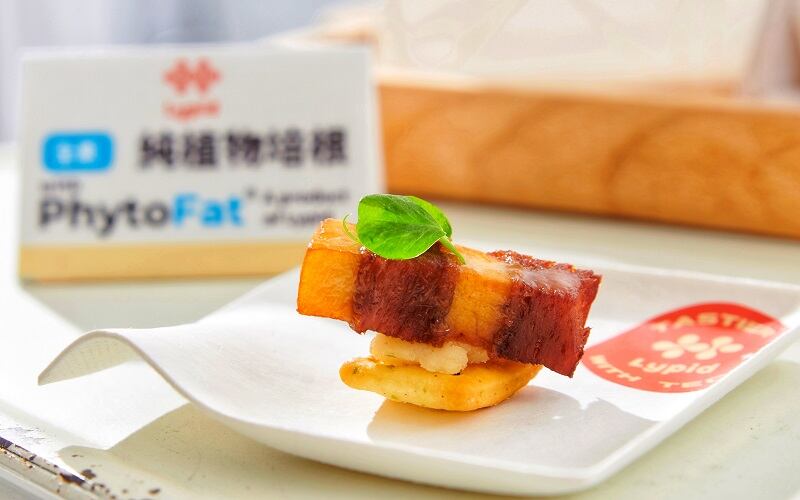“I think people in general in the industry do a pretty good job in protein,” Huang said. “But on the fat side, ... there's still a lot of things that we can improve, so that's why we decided to launch pork belly, leveraging our fat technology... We want to demonstrate that fat can really open up new product types.”
Showing the potential of fat in plant-based meats
While many of the plant-based market entries have focused on chicken or beef, Lypid has focused on pork and launched in both the US and the Asia Pacific market, partially because of the popularity of pork in those two regions, Huang said. Bacon is very popular in the US, and pork belly is a common ingredient in Korean barbecue and Vietnamese dishes, he added.
"We can really leverage our fat technology and create something that [hasn’t been] seen in the world before,” Lee said. “And especially something that highlights a high-fat content and really meets that contrast between the fatty animal tissues and also the proteins to really create something that's different than those that are present in the current plant-based world."
Not only is Lypid able to meet the need for these meatier flavors, but by leveraging its PhytoFat technology, it can also create a healthier product. Lypid's Phytofat ingredient microencapsulates liquid plant oils in water to create a spongy fat that retains these qualities when heated above 329°F, with a melting point of 400°F.
In comparison to traditional pork bacon, Lypid’s pork belly has 85% less saturated fat, 39% fewer calories, and 69% less sodium.
“We can launch a global product that everyone likes and at the same time really provide a better nutritional profile," Huang said.
New formats key to the plant-based market
Lypid is taking a "hybrid approach" to selling its pork belly as an ingredient and a finished product.
Like other plant-based meat companies, Lypid is looking at how it can make inroads into the foodservice and learn how chefs and restaurants use its pork belly. And most importantly, having chefs “willing to adopt these new products on a daily basis,” Lee said.
Lypid's current foodservice partners in the US and Taiwan have used its pork belly in a range of plant-based products, including bacon mac and cheese, bacon and egg Florentine Pizza, braised pork belly rise, bacon fries, and meatballs.
The company is also looking at how the two different geographies use Lypid Pork Belly and how they can use that information to further develop its products, Huang said.
Additionally, new formats like a whole-cut product can be an opportunity to grow Lypid’s business and the overall market, he added.
“We're looking for very different use cases and very different usages of those products. And I know we definitely also observed some slower growth in terms of plant-based meat in the [US], but I will say it's for crumbles and for patties. But for new type of products, it’s still pretty open... There are still a lot of opportunities to grow the market in terms of those new products on the market.”


